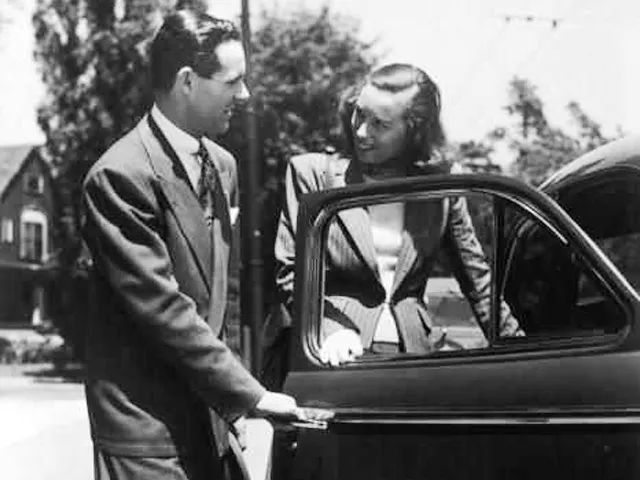
Women are the weaker sex - so what?
Women in Pakistan are delicately handled, like valuable, glass objects - should we appreciate these small advantages?
The pervasive staring can be annoying and so can a look on some mens’ faces which says: “she’s just a woman.”
While most Pakistani women are victims of inequality, abuse and threats I believe there is a ray of light that often goes unnoticed. In my experiences, many middle-to-upper class women in Pakistan are delicately handled -like valuable, glass objects. They are respected at least outwardly and even allowed to disgrace men in public for initiating eye contact.
In spite of the blatant prejudices, should such women appreciate the small advantages they are given in the Pakistani society?
On the bus
My journey towards exploring the gender issue began on a chilly, windy December evening in Canada, at Union Station, Toronto's central railway station and the hub of the city's massive transit system.
The bus was scheduled to depart at 9:20pm. It was 9:18pm, and I was nowhere near the bus platform. I began to run. But as it was December, there was sleet all over the sidewalk. I was still reeling from a hard fall on the snow, and I didn’t want to risk wrenching my back again. I tried to pick up my pace. The next bus wouldn’t leave until 10:10pm. I finally made it, panting and yearning for a vacant seat. But all the seats were occupied, and I had no option but to stand in the bus for 45 minutes. Being a woman did not make me an eligible candidate for priority seating.
I realised that men in Canada are not culturally accustomed to offering women their seats. I would not have been standing, if I were in a similar situation in Pakistan. Perhaps, if the bus was crammed with the elderly. But no young, healthy man would have remained in his seat.
At the time, I remember recalling back on those Pakistani buses that have a section at the front dedicated solely for women. This example is just one of many I have noticed – observations which have made me adamant that women within the Pakistani society are bestowed with covert advantages that women living amongst an equalitarian society are not offered.
On the road
While I was shopping at Gulf market in Karachi, a middle-aged woman was walking with her young daughter. A man must have grazed his arm across her daughter’s shoulder as he tried to get through the busy street, which at that time was crammed with pedestrians so people had to literally watch their every step to avoid bumping into passersby or being hit by others’ shopping bags.
The mother screamed frantically,
"Tumhe sharam nahi aati badtamiz, tumhari maa bhainee naheen hain?”
(Don’t you feel ashamed of yourself you ill-mannered man? Don’t you have a mother and sisters?)
The man apologised, trying to explain to the lady that he had no immoral intention of touching her daughter and clarified that if he had any such purpose he would have fled, rather than confronted the scene. But the lady stood by her indictment, and in the midst of an entire audience of shoppers humiliated him, until he had nothing more to say. In fact, all other men around her supported this female whole heartedly (who knows whether out of will or just to conform to social platforms) and began accusing the perpetrator of felonious conduct.
I am in no way suggesting that this man was innocent. It was possible that he was. The point I wish to relay here is that if a woman was in this man’s shoes, would she have been put through such a dilemma? Absolutely not. In fact, she would have been apologized to by the man, whom she intentionally or mistakenly met shoulders with. What other countries provide a woman the privilege of humiliating a man in public for grazing past her shoulder? If a man behaves similarly in the west, women are more likely to accept the apology and not make a big deal out of the situation.
Wherever you may go
Banks: Similarly, if a woman enters a bank in Pakistan or any other corporate office and if there is an extensive line, all men will respectfully make way and let her line up first. Isn’t that a privilege?
Airports: are another place where Pakistani men seem to extend their generosity. Whenever I’m standing near the conveyor belt at a Pakistani airport and don’t opt for a porter, a man always offers a lending hand when I’m trying to pick my suitcase. I have travelled to a few countries, and never received such treatment at any other airport! Such privileges may seem petty to a layman, but trust me they have their bonus.
Markets: Not too long ago, for example, I witnessed a female family member argue with a shopkeeper over the price of an item in a Karachi shopping mall. After negotiating with the shopkeeper for five minutes, and not reaching a settlement of any sort, this lady left the store with the item – without paying the asking price. As I walked out with her, I looked back at the shopkeeper – the poor fellow compliantly kept the given cash in his pocket, without uttering a word of annoyance. If a female attempted to do any such thing in the west, she would most likely be charged for shoplifting!
To me it seems as though this code of conduct is embedded within the social makeup of the country. Women are the weaker sex, so men feel the need to assist them in even the smallest of tasks. I think the question women need to ask themselves is whether they truly want to be treated equally to men in all aspects of life? Or just fairly?
By writing this piece, I am no way suggesting that Pakistani women should be appreciative towards men for their insignificant favours. The point of this piece is to give readers an alternative perspective on the notion, and just something to think about.
By giving women these so-called ‘special privileges,’ men in Pakistan have only just scratched the tip of the iceberg. On a wider scale, our society still has a long way to go to realize and appreciate a woman’s full potential, whether it is in child-rearing or in the workforce.



COMMENTS
Comments are moderated and generally will be posted if they are on-topic and not abusive.
For more information, please see our Comments FAQ